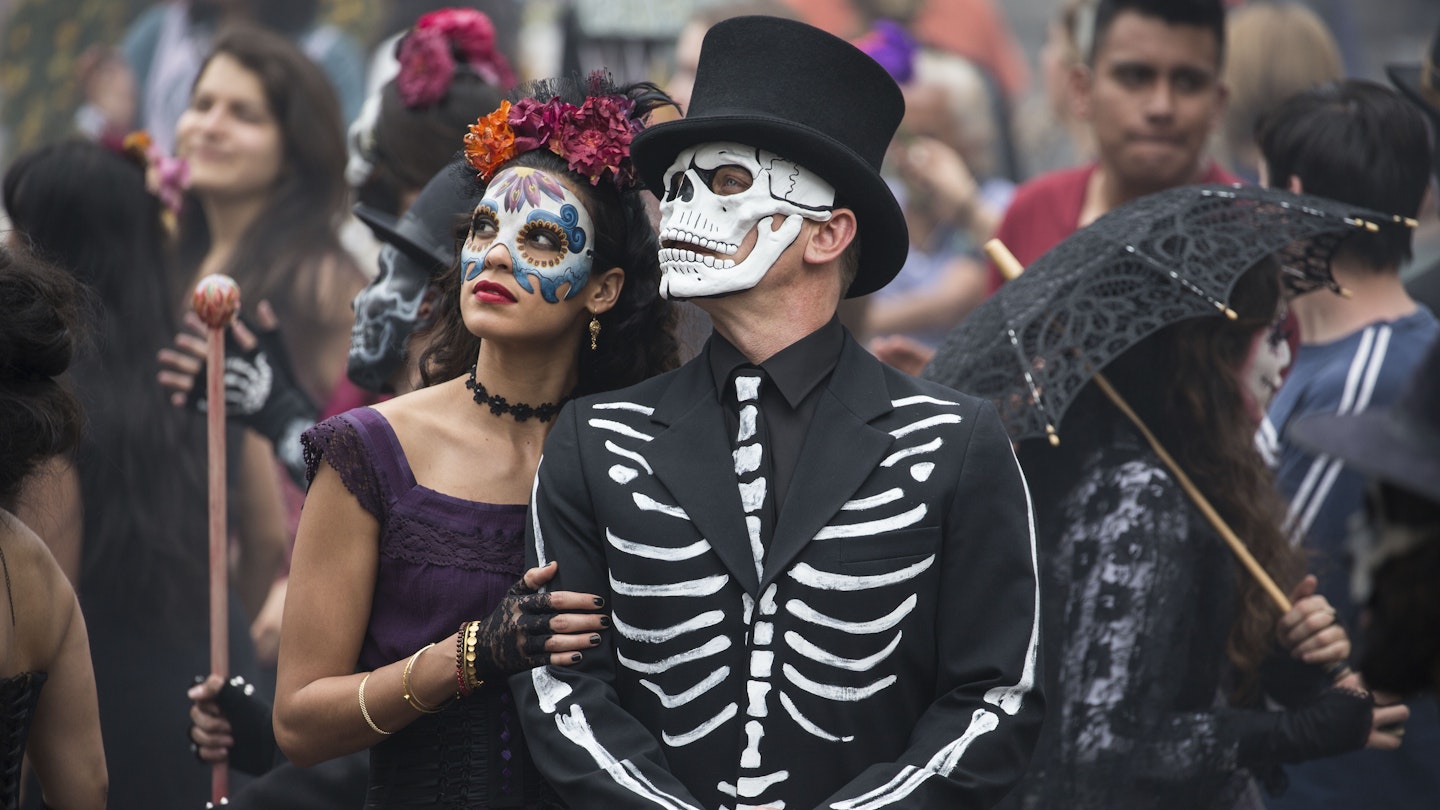In November, 2015, Empire sat down with Sam Mendes - director of the two most recent 00-outings - for a spoilerific discussion of all things Spectre, so read no further if you haven't seen the movie.
Topics we broached with Mendes included Craig's possible retirement, some nifty Mexican camera trickery, the identity of 009, and some bloke named Blofeld. For even more Spectre secrets, and four of Empire's finest idiots discussing the movie's ins, outs and ins again (it is a Bond movie, after all), our Podcast Spoiler Special is now available on SoundCloud.
1. Skyfall and Spectre are films about family.
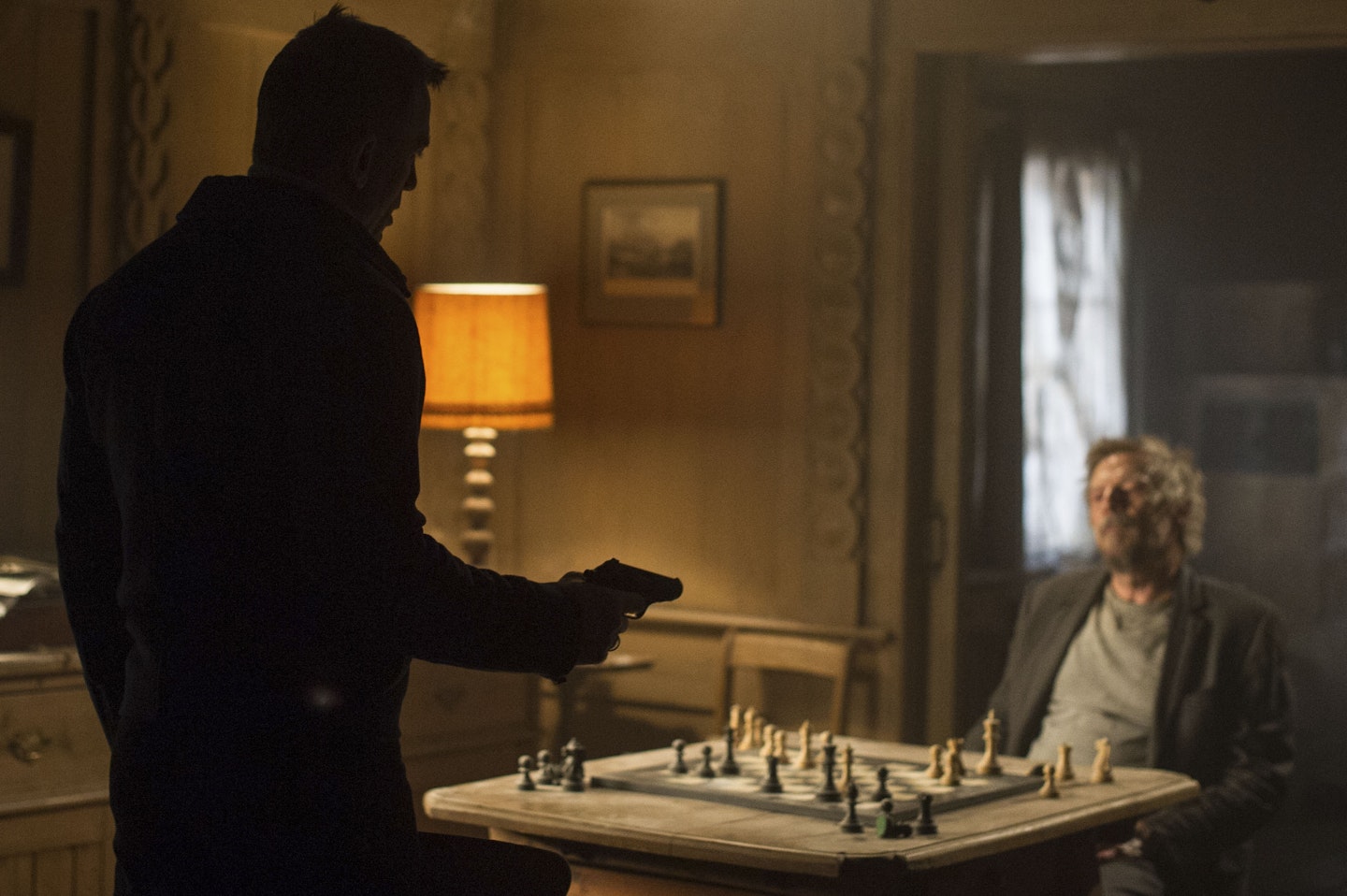
"For me the last movie was about mothers. It was about two sons fighting over a mother, ultimately Silva and Bond, the chosen son and the rejected son fighting over Judi’s M. That was, in many ways, the family story of the movie, and then the fact that Bond had lost his own parents, his own mother and there was a gravestone and the first conversation about being an orphan with her, all of that was tied in. Here, it’s all about fathers, it’s about her [Lea Seydoux's] father, it’s about his surrogate father, it’s about Christoph’s father, and that was a very deliberate decision."
2. Mendes doesn't believe gadgets have the same thrill factor they used to.
"It’s deliberate that the gadgets in the car, some of them work and some of them don’t. But I think that’s part of the fun. You’re finding out about them with Bond. I think, crucially, the whole story does pivot on a single gadget. It pivots on an exploding watch and there’s no question that, without that, Bond would be gone. It’s something that Q gives him almost in an offhand way, and says very lightly, 'oh by the way, look out for the alarm, it’s a little loud, if you know what I mean', and that’s all that’s said. So I did embrace that part of it.
You know, gadgets are tricky unless they really do something significant in the story. What a gadget meant in 1975, when you can walk into the Apple Store and buy any gadget you can possibly imagine, they do not mean in the year 2015, you really sit there and think and think and there’s almost nothing you can imagine that is going to have that thrill. Which is why it's weaponry in the end, to be honest with you, mostly."
3. The opening sequence is not just a single shot.
"It’s actually four shots morphed together. I hate to say that because, of course, I don’t want to break the illusion. I challenge you to spot them. In the planning and in the preparation it was a large amount of time, but in the shooting it wasn’t that long. It does move from Mexico to Pinewood and back. There were certain things I could only do on the stage at Pinewood.
It was something I had in my mind from very early on. It was also partly that one of the things I felt I could have done better in Skyfall was the first ten minutes. I’m very proud of the movie and equally proud of this one, they’re apples and oranges. But I did feel there was a slightly frenetic thing that kicks in when you’re just trying to say, 'action action ACTION!' all the time. It was a chase and it didn’t have any shifts of rhythm in the first ten minutes of Skyfall. It leapt distances, because it was parallel action. You were cutting back to London and you were cutting to Moneypenny and you were cutting to Bond, so you went from car to feet to motorbike, and you travelled across train, and you travelled long distances.
But in Mexico I wanted it to be ten minutes of real time and I wanted the audience to feel like they were in Bond’s shoes. I felt that it was one of those things – it hopefully draws the audience in, it lures you, it lulls you, it puts you in the rhythm of the music and the crowd and even Bond’s footsteps, and then the whole thing explodes. Literally. It’s a gunfight, the building collapses around him, it’s a race through the street, it’s got source music woven in, there are long periods where it’s source, and then it culminates in a helicopter fight, the first half of which is unscored. It shifts rhythms several times within the first ten minutes.
I’m really proud of that sequence, it is what I meant, and I’m more pleased with it than I was with the equivalent section of Skyfall."
4. The opening of Mikhail Kalatozov's I Am Cuba was not a direct influence on the opening shot, as many believe.
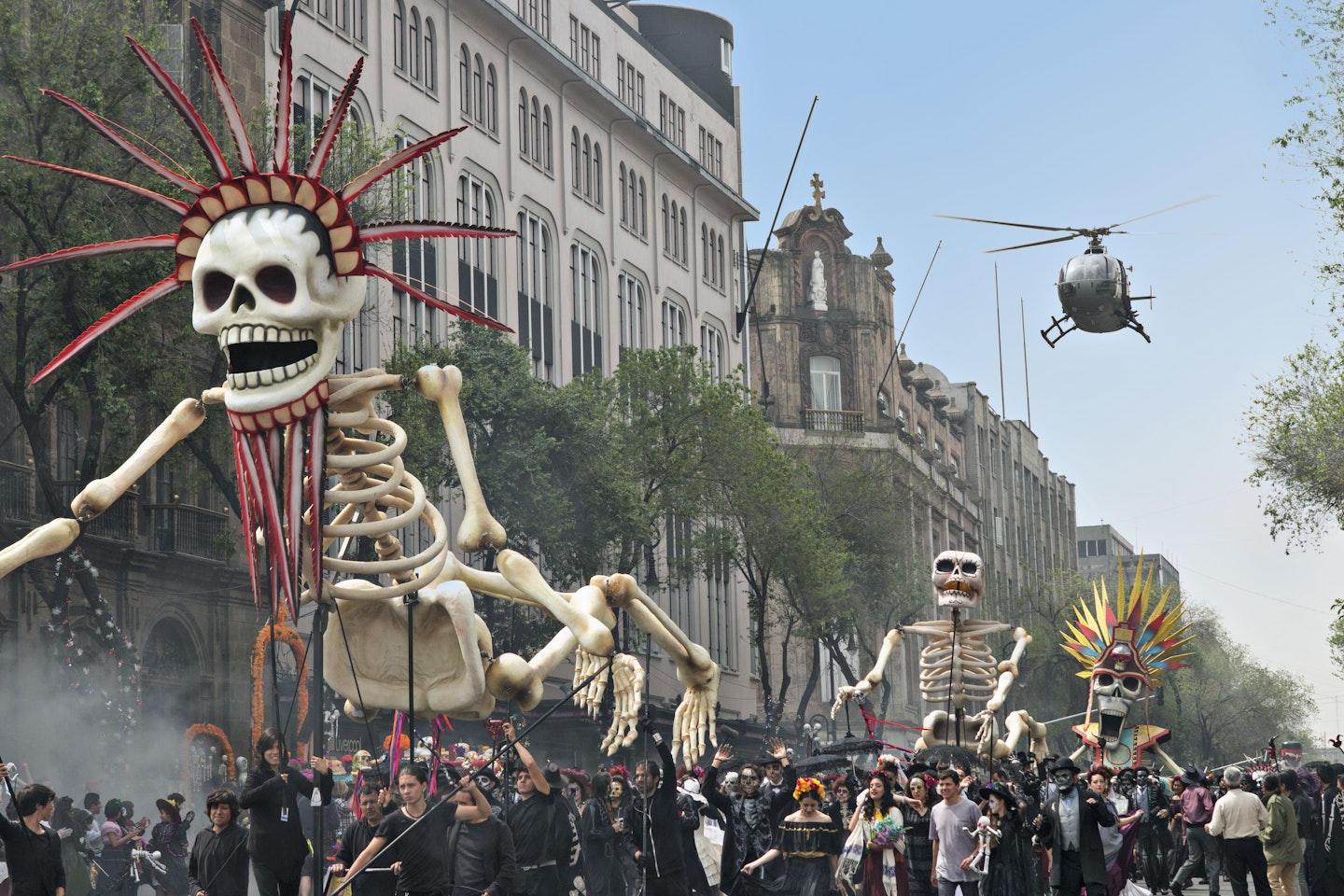
"No, it wasn’t. I thought more about Touch Of Evil, and the inevitable Goodfellas moment. That’s such a brilliant shifting, the journey of the steadicam in that scene is so spectacular. These days, in a way, you could argue that Birdman is the greatest shot of all time. It’s the entire movie! How do you define shot? I feel like four and a half minutes is child play."
5. Moneypenny’s mysterious late night visitor isn’t C.
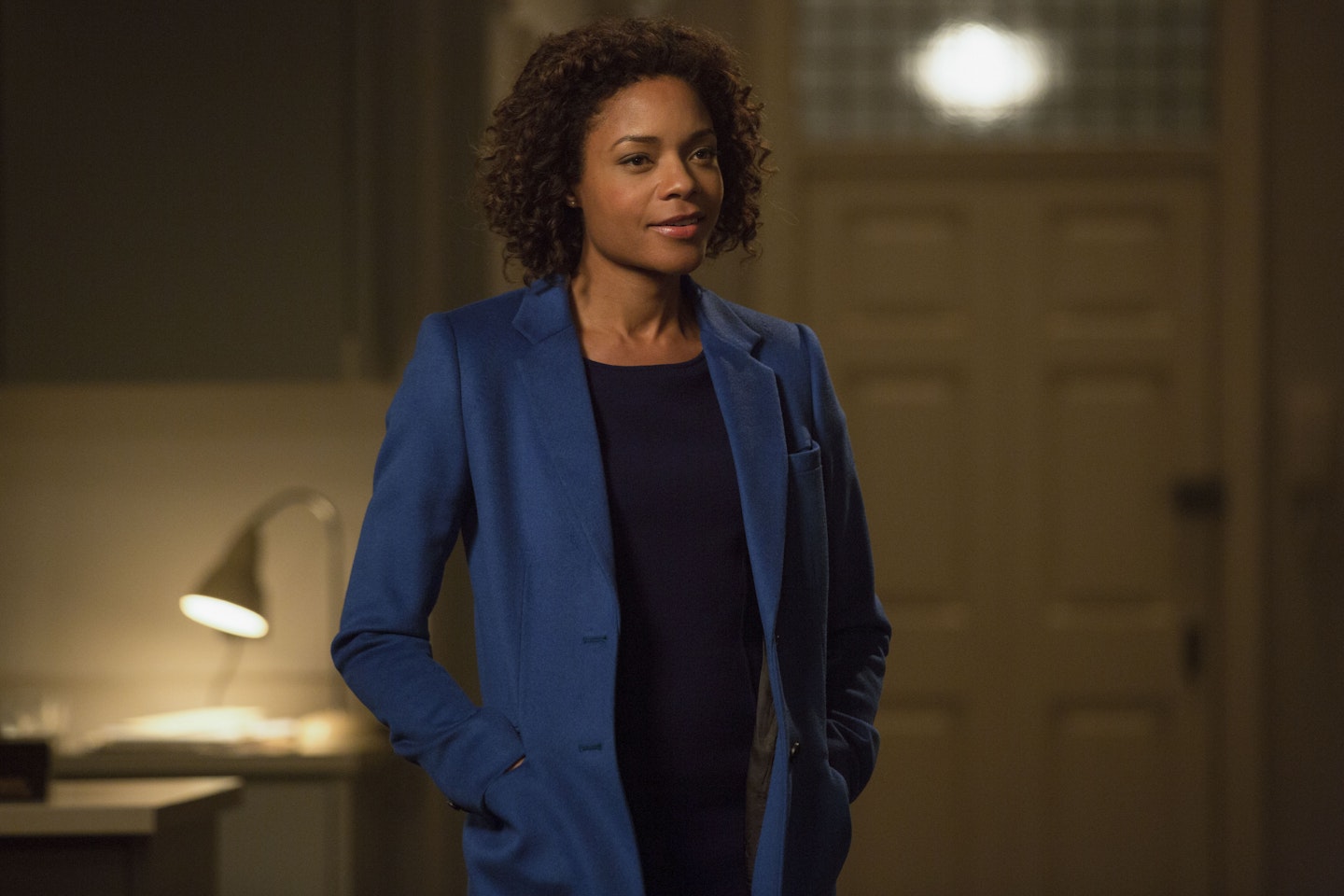
"Oh, I shot his face. I didn’t show it because I felt I wanted it to be a bit more mysterious. It’s not really about that and I didn’t want that added confusion. It’s not secret. Somebody at one point said, 'is that Andrew Scott in bed with Moneypenny'? No. It’s clearly not him." [NOTE: In fact, it's actor Tam Williams, who is credited as 'Moneypenny's Boyfriend']
6. Andrew Scott’s Denbigh was almost the film’s main villain.

"There was a long period in the script, and this is months before we started, where it actually flipped and it turned out that he was the person who was running the show; the person that Bond had been looking for all along. Blofeld didn’t feature in that version of the story. It was a long time ago. But he was a very easy figure to find parallels for in the contemporary political world. And look, not all of them deserve death by Ralph Fiennes from a great height, so please don’t quote me as saying I’m all in favour of killing the head of MI5.
The argument he dramatises makes concrete the argument that it’s better to operate through drones and surveillance and not put men on the ground and not endanger innocent lives, or our own innocent lives. In a sense, he was essential in a world where MI5 and MI6 are no longer accepted as the good guys, but the public has a more ambivalent relationship with the security services. It was essential that we dramatised that aspect of it through a character that wasn’t Bond so we could set Bond and M up as, within that world, the good guys. That’s being very crude about it, but it’s true.
C embodies all the things I most dislike about the security services. The obsessive need for surveillance, the sharing of surveillance between international security organisations, the fact that they are immensely powerful, unelected and almost entirely unknown to us. And the fact that drone warfare is encouraged. M has a very good speech about this, I think, where he says, 'to kill a man you have to look him in the eye and the licence to kill is also a licence not to kill', and all the bugs, drones and surveillance in the world can’t make up for that…"
7. Mendes believed Bond’s final lines in Spectre were a farewell from Daniel Craig.
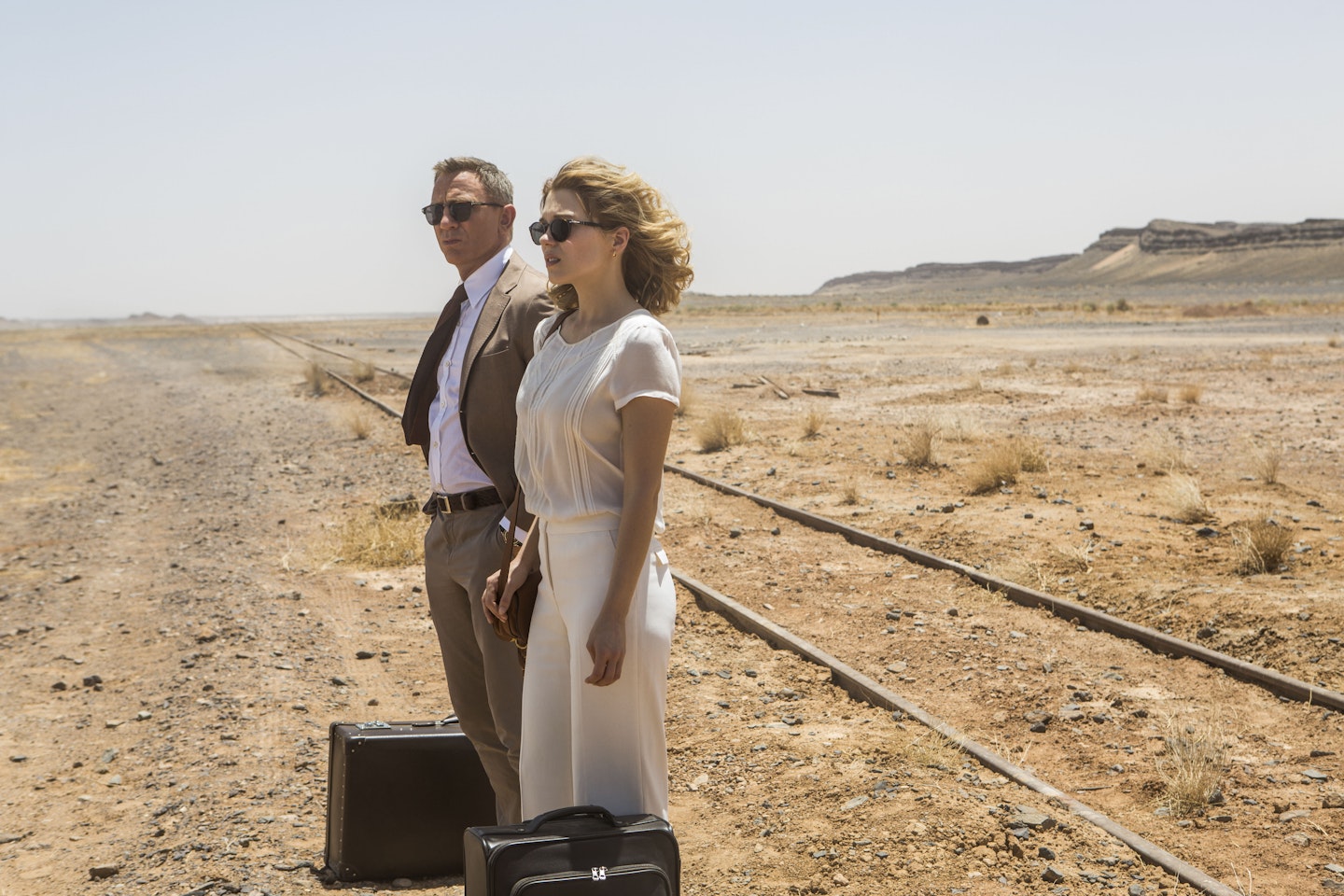
"Put it this way. If he chooses to sign off with this movie [Update: he didn't], he is doing so in style. He has walked away within the body of the movie and that was something I was particularly concerned to do. I wanted to tie up all of Daniel’s movies into this last film in some way. And with it convey that there had been one figure that had been behind everything that had happened to him over the last three pictures. I wanted him to decide to leave at the end. I think what tied into that, clearly, was the debate over whether he himself as an actor would return to do another Bond movie. If he didn’t, this was a great way to walk away. That decision can only be made by him [Craig]. It’s clearly possible that he could come back, he’s just gone off on holiday at the end if you want to read it like that, but to me, when he turns around at the end and says, ‘I’ve got something better to do’, he means it."
8. M's killer 'c-word' line was a winner from the get go.
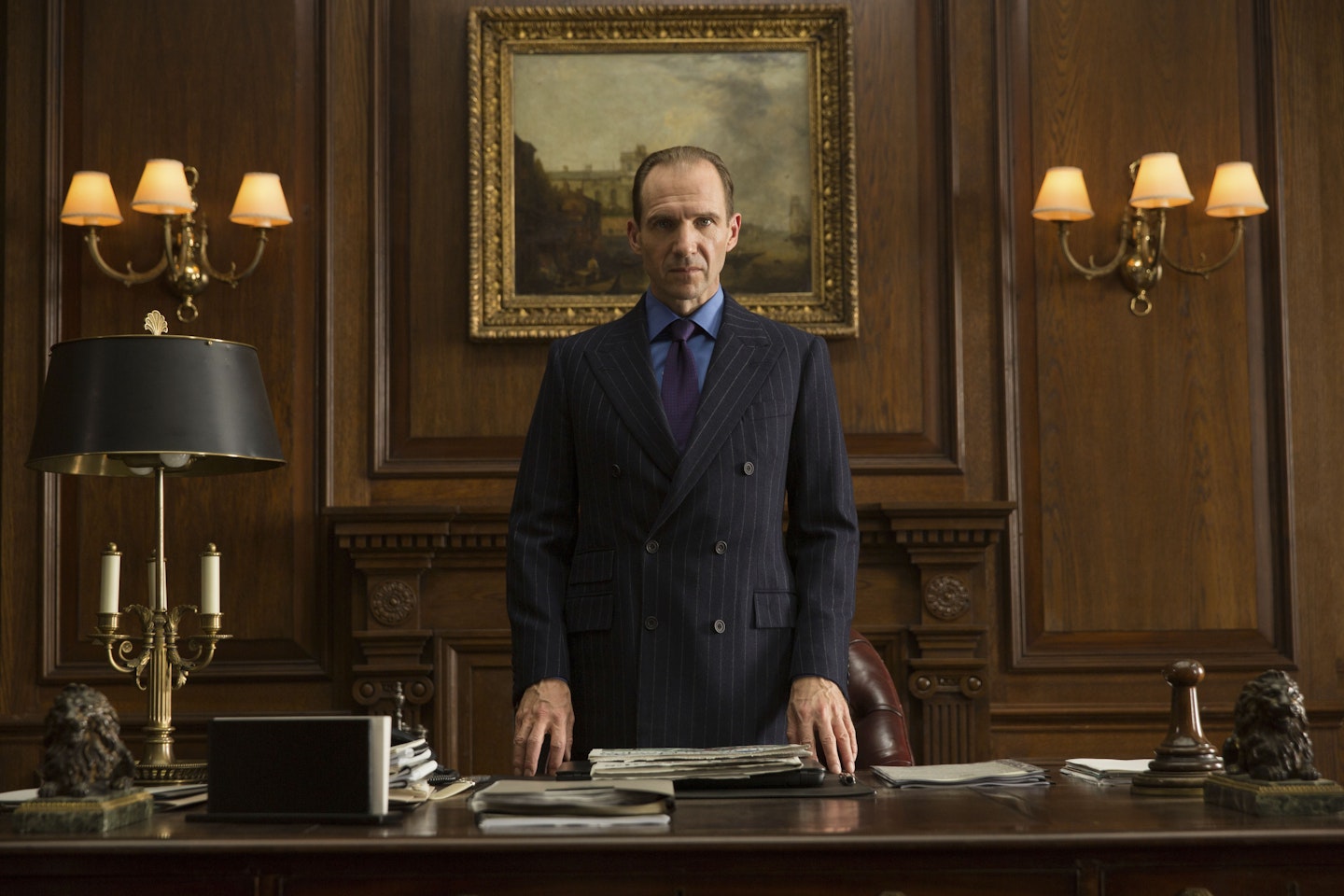
"There was no discussion. Once Ralph saw it, I wasn’t going to be able to prise it out of his fingers. You and I both know it stands for 'cat'. That’s why it got the laugh."
9. M will never, ever remember Moneypenny’s birthday.
"Never. Not a chance. No, I think she hopes every year that he will, but I’m afraid he never will. He’s just not that kind of a guy."
10. Blofeld’s Bond return had been on Mendes’ mind for some time.
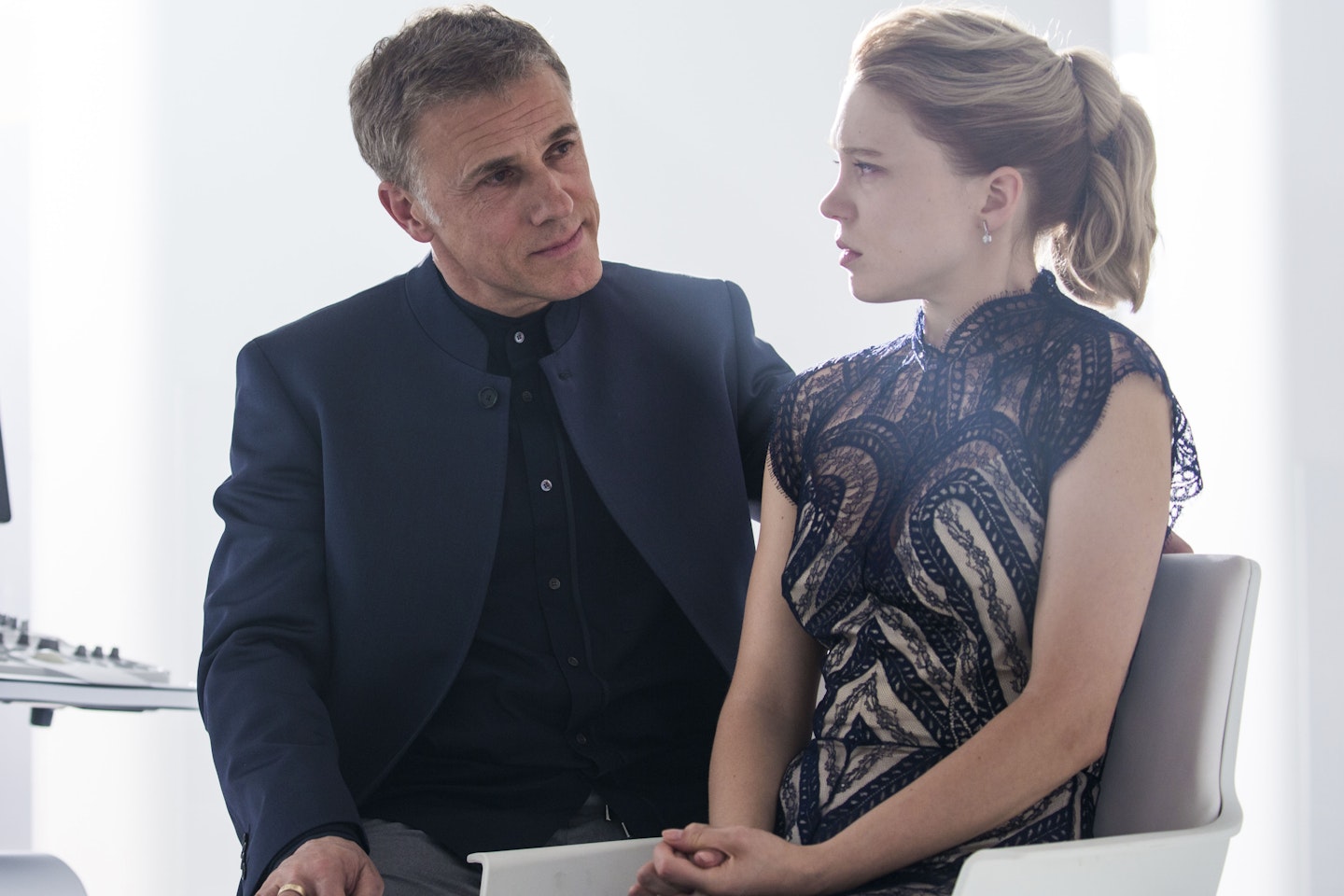
"Once we’d gone back to Bond’s childhood in Skyfall, I was fascinated to seek out all the other references to what happened next, and the truth is there are very, very few. He gets brought up by his aunt, and gets sent away during summers, or winters, I can’t remember which holiday it was in Fleming, to spend time with Hannes Oberhauser in the Austrian Alps. It says something very noncommittal like, he was a father figure to me at a time when I happened to need one. That’s it. That was the clue we had and that’s what we took. What if there was a natural child who had been pushed out, cuckoo in the nest by the blue-eyed good-looking talented skier and good climber, and he was a feeble little weakling, doing his homework upstairs. That figure felt like someone whose story I wanted to know."
11. It was never an option for Bond to kill Blofeld.
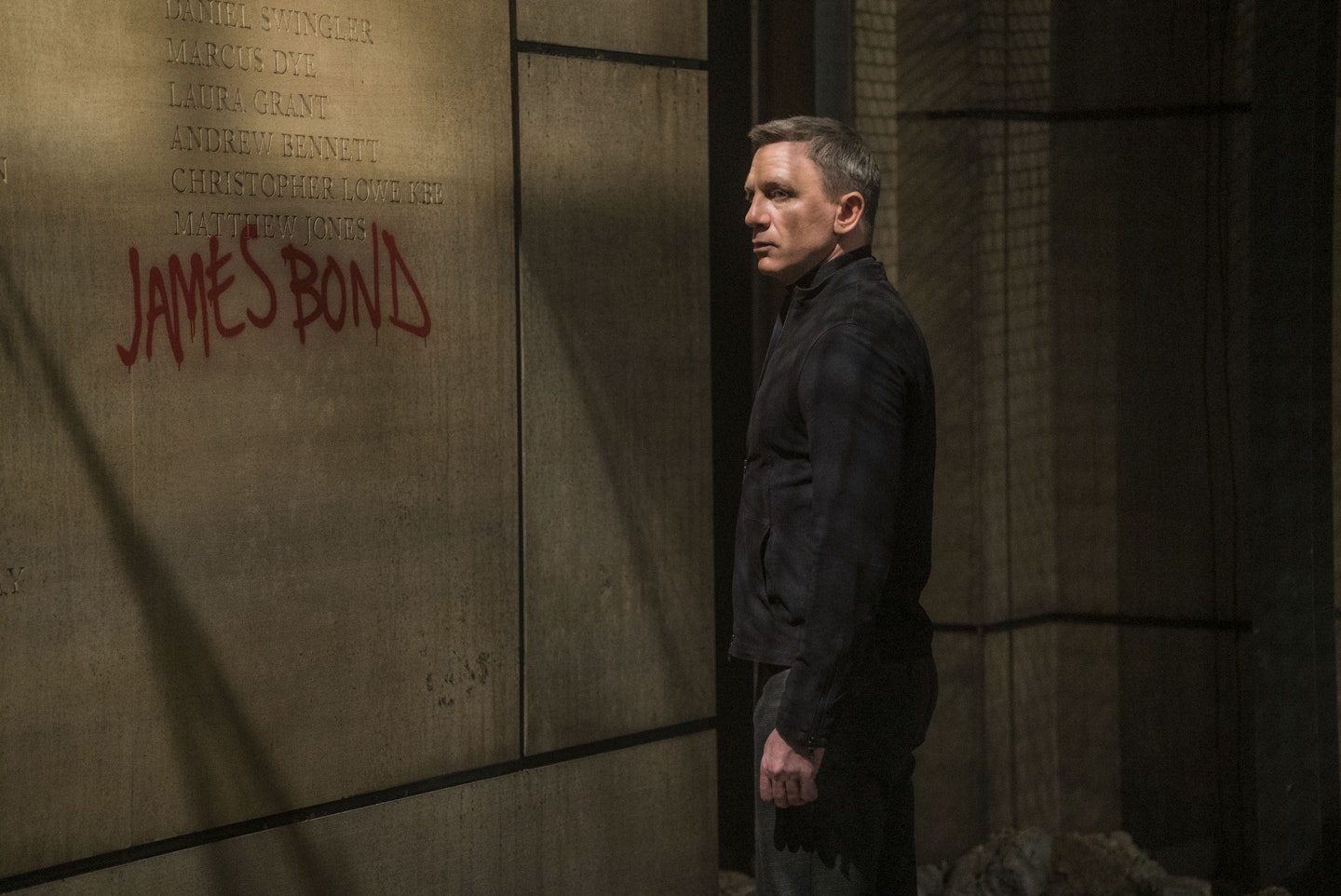
"I felt very, very strongly always that Bond, at some point, has to win and not kill him, but he has to clearly win. He has to take the moral high ground. A character like the character Christoph plays is going to be more punished by being known and locked up than by being killed. I hope the punishment is greater than death. I wanted to build the whole movie to the point where Bond has to make a decision, between the gun on the one hand and the heart on the other.
I also thought there was a great irony there. It’s a movie about a man who kills people for a living, he says that himself. 'I kill people. It’s not the sort of thing that looks good on a form', he says. And it’s building to a moment where he decides not to kill someone. It’s sewn into the fabric of the film in a way. The danger is you might get trapped in a situation where you’re going to leave the audience unsatisfied if it doesn’t happen, but I hope it hasn’t happened. I hope they’re very satisfied. You know he’s walked away, job done, and you’re also thinking, 'but that villain could come back'. That’s something I’m very proud of."
12. Q's DNA wizardry with the Spectre ring can be explained. Honest.
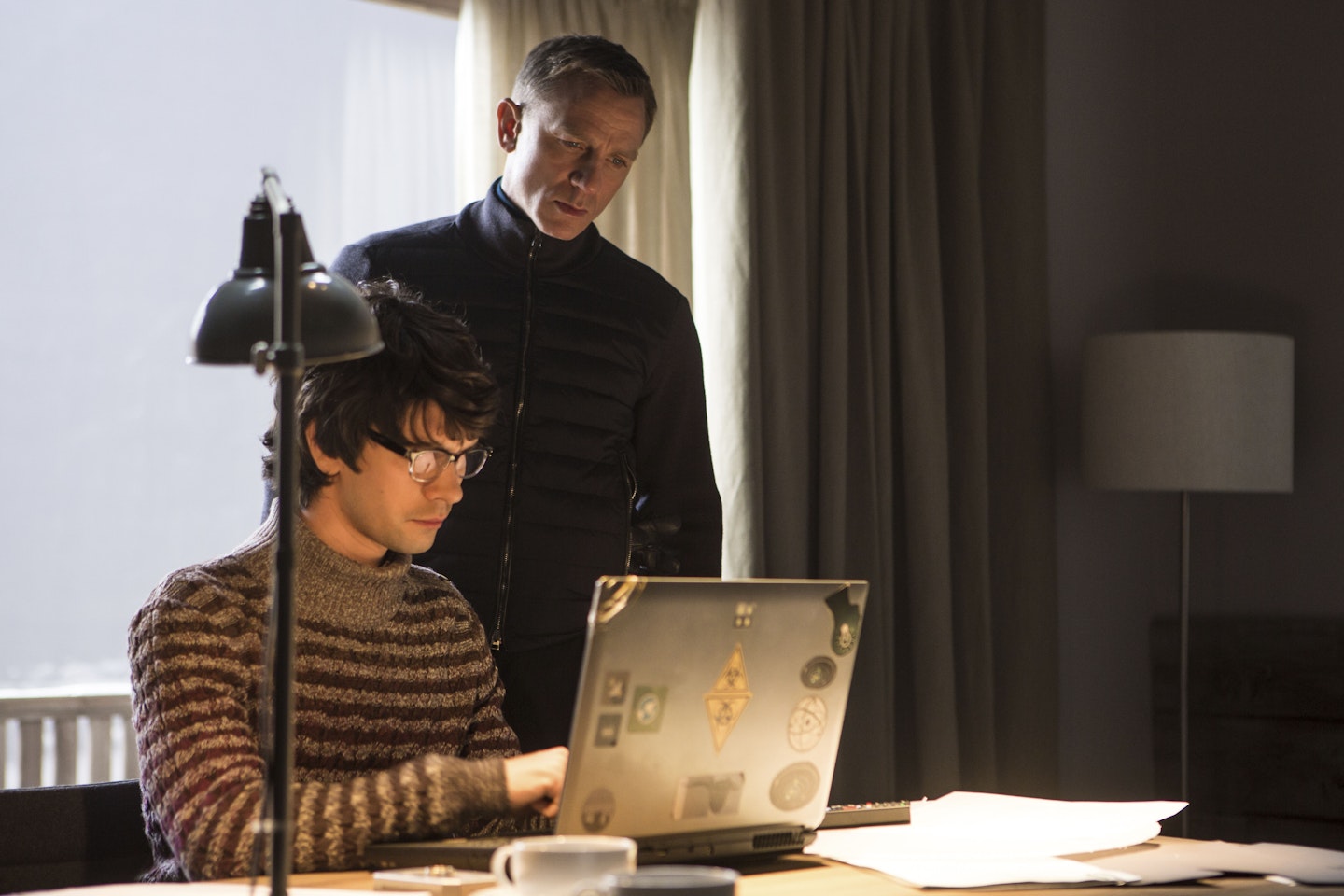
"Initially, he’s analysing fingerprints and DNA from fingerprints, but then it’s toxicology reports. He’s analysing post-mortems of various dead bodies, and finding traces of a very rare substance - Ridium, I believe it’s called - in all the corpses of people that Bond has been involved with over the last three. They’ve all worn the rings at some point. That is the thing that makes him convinced they’re all linked. You can’t tell that unless you freeze-frame on those graphics, but it does make sense.
What’s interesting is that one of the things you realise is it’s one of the things the audience already knows is in the movie. The audience knows Oberhauser is still alive so there’s no sense in spending time watching Q discover that Oberhauser is still alive. You just have to believe that he knows how to do that, and that he’s found the solution. I feel you see just enough to believe it."
13. Spectre's use of biotechnology may become an everyday reality for future Bond fans.
"That’s not far off, actually. 'Computer chips in the bloodstream', as Q uses layman’s terms to talk to Bond about it, and you see a little graphic of them flooding into the bloodstream. That is really not far off, your tiny little micro-transmitters and things that are rebalancing your body from the inside, and replacing things that your body may be lacking, particularly for all sorts of diseases. Biotechnology seems to be the way forward in the way that computers can healthily interact with and improve the lives of human beings. That seems to be the way forward. My minimal knowledge of that I was able to squeeze in. At one point the significance of that, of Q observing what Bond was going through, studying his vital statistics based on the smart blood, was a more significant part of the story, but gradually that seemed less interesting and also involved having to cut back to London, which at certain points we didn’t want to do."
14. Mendes wanted a low-key Blofeld reveal.
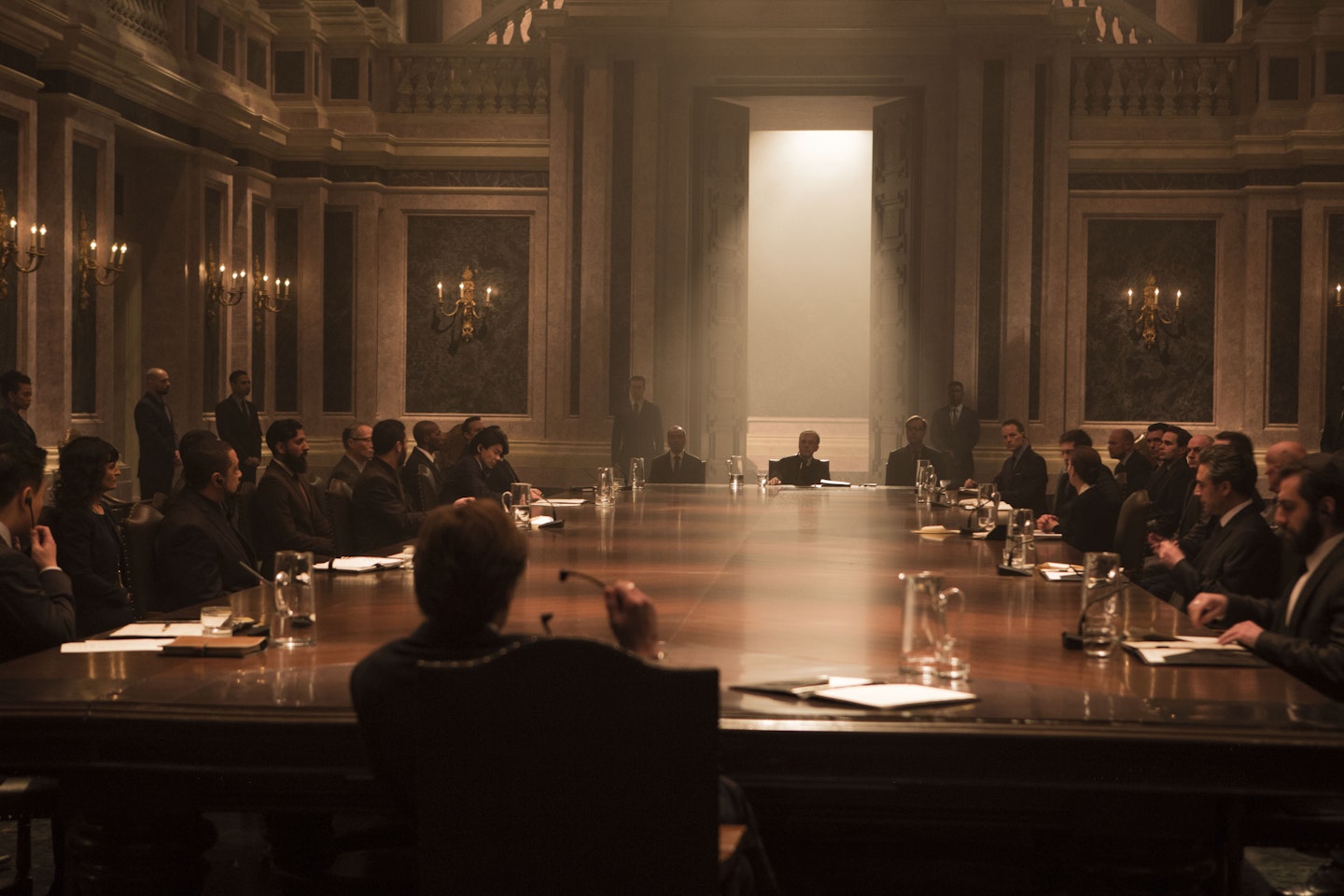
"It’s just so much cooler. I think Christoph is the opposite of the moustache twirler. He’s not someone who’s given to those melodramatic reveals. It seemed appropriate that he would say it in passing, and Bond’s response which is ‘catchy name’ always made me chuckle. One of the things you learn when you do classical theatre is when you have a famous line, it’s often better to throw it away than to deliver it as if it’s a famous line, or to find a way of treating it as part of a scene, or part of a character’s arc rather than a standalone line, a moment."
15. Mendes had his reasons for withholding Blofeld's name for the movie itself.
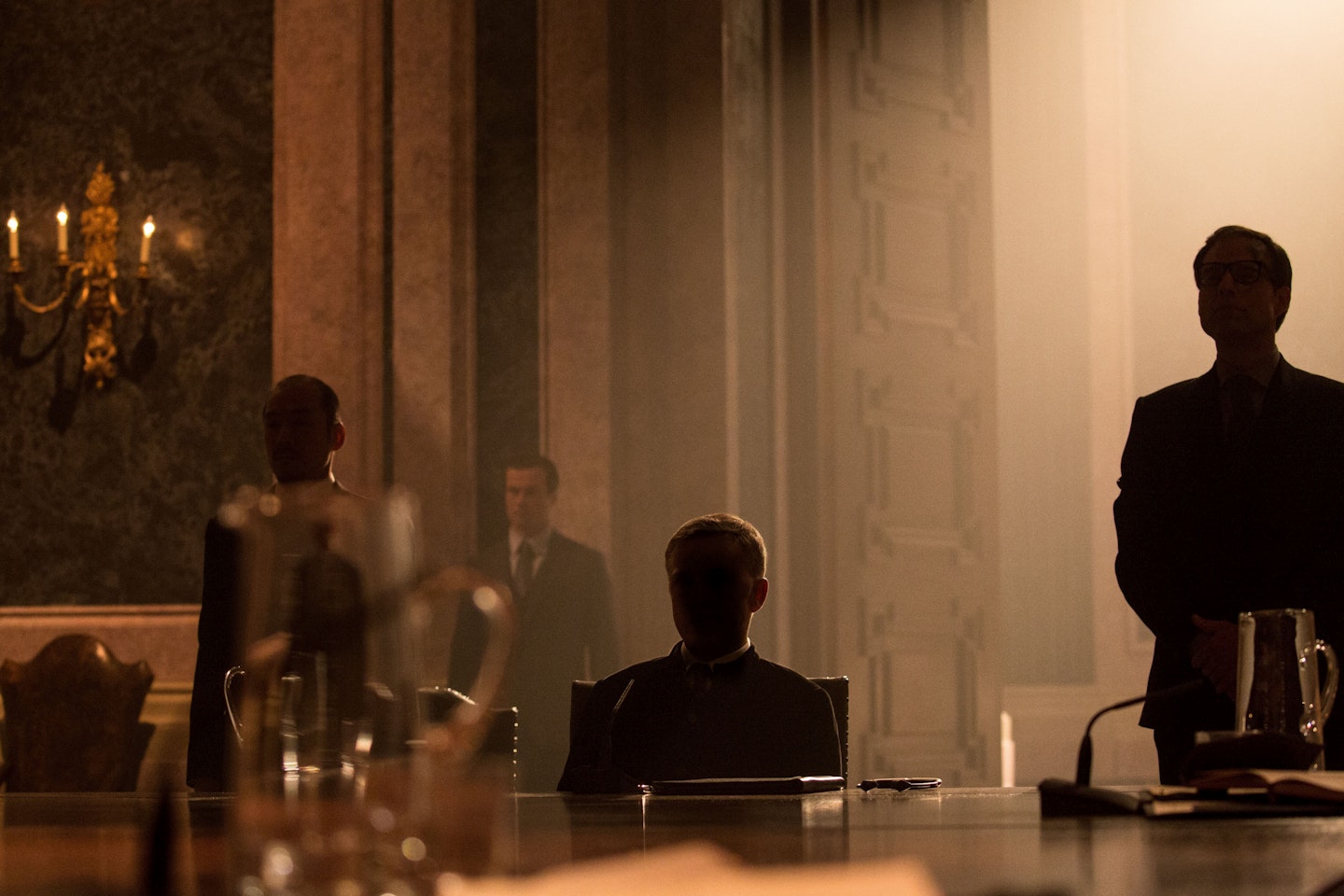
"It would have been much easier to go, ‘yes, he’s playing Blofeld, just ruin the movie for yourselves, why don’t you? Just get on with it’. Call me an innocent, but I just had to stick it out. You’re watching a detective story, you don’t want to know the name of the murderer. The character doesn’t start off knowing who they’re dealing with, then why should the audience? Had we decided to introduce Blofeld in another way, if he’d arrived in scene one with the name Blofeld, I’d have said ‘Ernst Stavro Blofeld’ in the press conference. But because Bond doesn’t know that at the beginning of the story, I think it’s absolutely wrong that the audience does.
I think you have to preserve some of the secrets of the movie for it to preserve an audience’s enjoyment, and I’m not talking about hardcore Bond fans. I’m talking about the general public, I’m not talking about people who are reading every online review of the trailer, or are in the heart of the debate, as it were. I’m talking about people who know their Bond a bit, and have seen Bond over the years, but I was convinced we did the right thing when we previewed the movie. We previewed it to 200 people, and I said, 'did you feel cheated? Did you feel you should have been told?' They said, 'no, it’s fantastic. The moment we saw the cat, we thought, ooh, it’s coming, and then it came, and the stakes started shifting in the scene'. And then you see, of course, how he got the scar. You see how he lost the eye, how it happened and it’s Bond who’s done it. In a way, it’s a Blofeld creation story, and that was very important to me too, that you didn’t just announce him. Perhaps next time you meet him, he might have shaved his hair off and you’ve got the full package. You never know."
16. M's haunting message from beyond the grave took several forms.
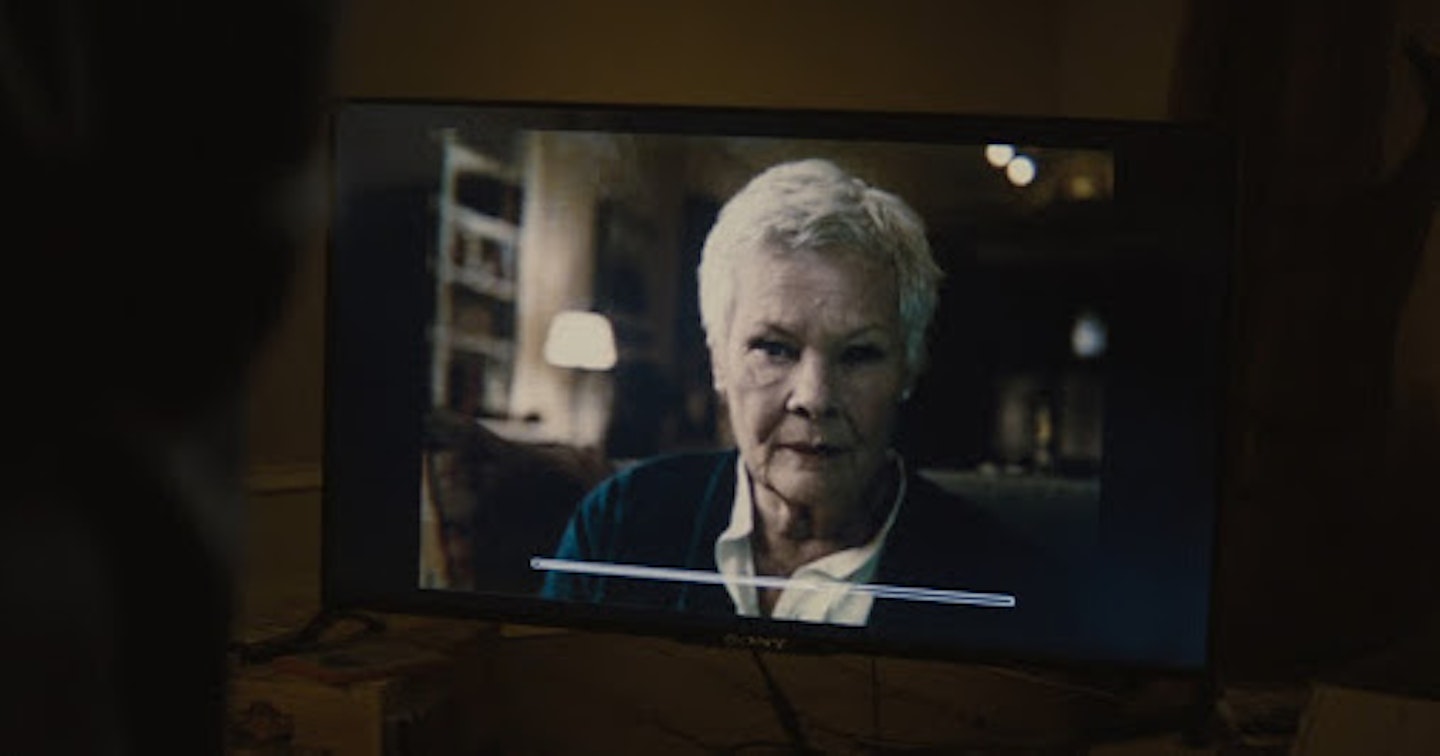
"We debated a lot about how much she should say about this. She’s known, she’s suspected there was one person behind all of it, I think, for a while, but knew the only way she could give it to Bond was as a paper chase. If you tip that domino, the rest of them might fall over, so go get that man, kill him, go to the funeral and see what you might find. It’s a big difference. We debated whether Judi should say, 'don’t miss the funeral, you might be surprised who you will meet there'. We decided she shouldn’t even say that. She should just say, 'go to the funeral'. It was a very Judi-like haiku message. We debated whether it should be written or if you should see her. I thought the impact of seeing her face and hearing her voice, when you don’t expect it, and the memories it brings back, enabled me to underscore it with some of the music that accompanied her in Skyfall, and call back a whole little world of memories from that last movie. I’m really pleased we did that."
17. Sam Mendes is done directing Bond. Maybe. After all, didn't he say that last time around?
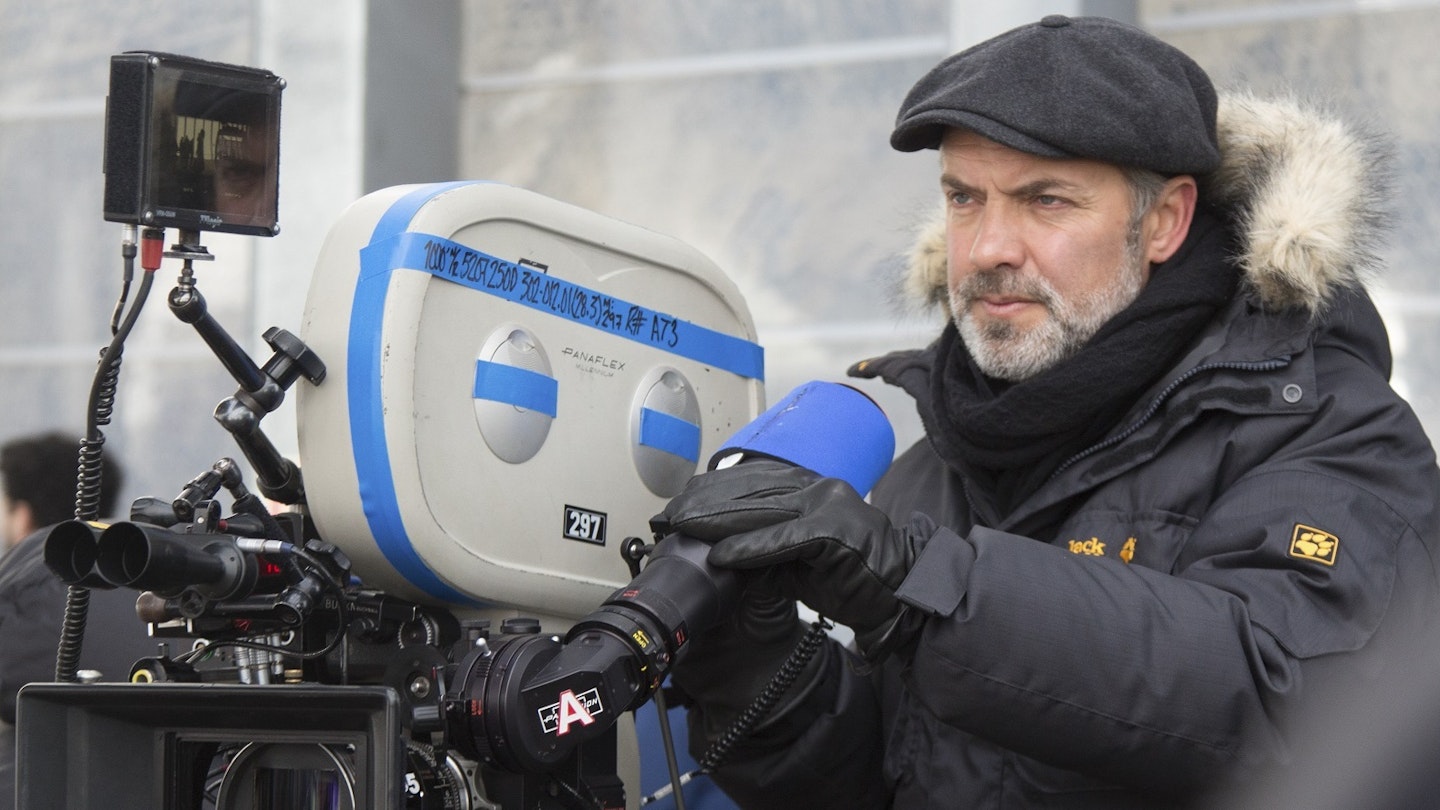
"I did. And it was a load of tosh, wasn’t it? I wouldn’t believe a word I say. I think that what I realised last time is that there’s literally no way to make a clearheaded decision this close to finishing the movie. You’re just too close to it and you can’t imagine another version of the story. I do doubt it. I feel really proud of this movie, but it’s five years of my life on this franchise and this world with these characters. It’s a long time. I think the only reason to move on is not a negative, not that I’m bored of it or that I don’t want to do it anymore, but that I have other stories I’d rather tell as a filmmaker, and I think that’s the more likely and more realistic version of what’s going to happen, that I’m going to fall in love with another story that I want to tell that’s completely different."
18. The identity of 009 is…
"Who have I cast as 009? That’s the question. In my head, I know who 009 is. That’s the truth. I can mouth it to you, and then you can lay a trail of clues. In my head, it’s..." [see the next issue of Empire for further details. Well, he did ask us to lay a trail of clues.]
